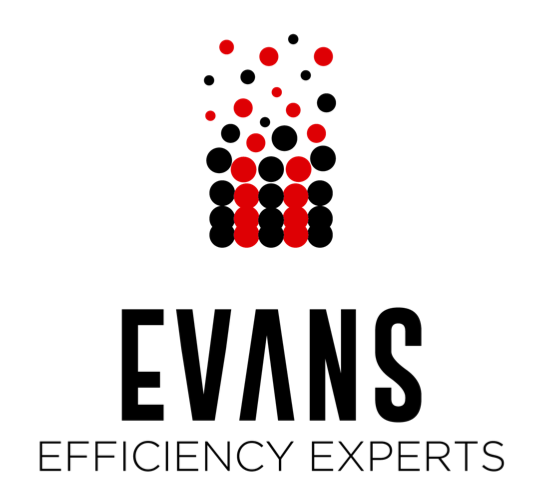Developed by Isabel Briggs Myers and her mother Katherine Briggs, the Myers-Briggs Type Indicator (MBTI) is a personality test based on Carl Jung’s theory of personality types and it recognizes four scales when determining personalities. The scales and their explanations are included below.
Extraversion (E) and Introversion (I):
Extroverts feel energized after social interactions and Introverts recharge when they are alone.
Sensing (S) and Intuition (N):
Sensing types gather information from reality and Intuitive types lean on possibilities.
Thinking (T) and Feeling (F):
Thinking involves logic-based processing and Feeling involves emotion-based processing.
Judging (J) and Perceiving (P):
Judgers prefer structure and order and Perceivers prefer being flexible and spontaneous.
Based on these scales, there are 16 different possibilities available to define your personality type. If you are unaware of your MBTI, take this test to find out! Once you confirm your type, you can determine which best practices can be utilized to ensure your maximum productivity.
The MBTI types include four categories, and each category contains four personality types:
Analysts:
INTJ (The Architect), INTP (The Logician), ENTJ (The Commander), and ENTP (The Debater)
Diplomats:
INFJ (The Advocate), INFP (The Mediator), ENFJ (The Protagonist), and ENFP (The Campaigner)
Sentinels:
ISTJ (The Logistician), ISFJ (The Defender), ESTJ (The Executive), and ESFJ (The Consul)
Explorers:
ISTP (The Virtuoso), ISFP (The Adventurer), ESTP (The Entrepreneur), and ESFP (The Entertainer)
Keep reading to find out what will help YOU be more productive at work!
INTJ: 1) Make to-do lists; 2) Break down bigger tasks into smaller chunks; 3) Remember the 5-minute rule; 4) Give yourself a deadline; and 5) Create a routine that works well for you.
INTP: 1) Do the hardest task first; 2) Delegate; 3) Have a good morning routine; 4) Make work a game; and 5) Remember that completed is better than perfect.
ENTJ: 1) Track time; 2) Find a routine; 3) Find the right playlist; 4) Work smarter, not harder; and 5) Set both short-term and long-term goals.
ENTP: 1) Prioritize; 2) Delegate and outsource what you can; 3) Set clear goals; 4) Take breaks; and 5) Declutter.
INFJ: 1) Schedule your time; 2) Find a work-life balance; 3) Exercise; 4) Learn to say no; and 5) Set reminders.
INFP: 1) Make a strategy; 2) Make to-do lists; 3) Get rid of all distractions; 4) Make your space clean and tidy; and 5) Work on being more open to criticism.
ENFJ: 1) Prioritize; 2) Learn to say no; 3) Organize your space; 4) Plan your day the night before; and 5) Don’t overwork yourself.
ENFP: 1) Write to-do lists; 2) Take regular breaks; 3) Eliminate distractions; 4) Live healthily; and 5) Batch similar tasks together.
ISTJ: 1) Find the right playlist; 2) Have a neat workspace; 3) Work on adapting to changes; 4) Take meditation or mindfulness breaks; and 5) Focus on 3 important things each day.
ISFJ: 1) Give yourself credit; 2) Don’t overload yourself; 3) Have a to-do list or checklist; 4) Track your time; and 5) Take regular breaks.
ESTJ: 1) Have a good work-life balance; 2) Organize your day the night before; 3) Minimize distractions; 4) Make to-do lists; and 5) Be open to new ideas and suggestions.
ESFJ: 1) Plan your day the night before; 2) Set your priorities; 3) Seek feedback; 4) Analyze how you are doing so far and how you can improve; and 5) Set deadlines for yourself.
ISTP: 1) Batch similar tasks together; 2) Communicate more effectively; 3) Choose one day for planning; 4) Delegate; and 5) Align your short-term goals with long-term ones.
ISFP: 1) Set goals; 2) Track time; 3) Have a specific day for planning; 4) Take mindfulness or meditation breaks; and 5) Break tasks into smaller chunks.
ESTP: 1) Don’t multitask; 2) Cultivate deep work; 3) Block out time; 4) Use apps or a pre-organized planner; and 5) Try out different productivity methods.
ESFP: 1) Schedule a day dedicated to planning; 2) Do the hardest task first; 3) Batch similar tasks together to avoid losing focus; 4) Don’t multitask; and 5) Avoid distractions.
Do you find comprehending these concepts challenging? If so, please complete this New Client Questionnaire and schedule time with Evans Efficiency Experts so we can get to know each other AND determine how we can best work together as soon as possible! If you do not personally or professionally need our services, please forward this message to someone – an entrepreneur, a non-profit organization trailblazer, or a for-profit corporation leader – in your network who you think will benefit from an introduction.

